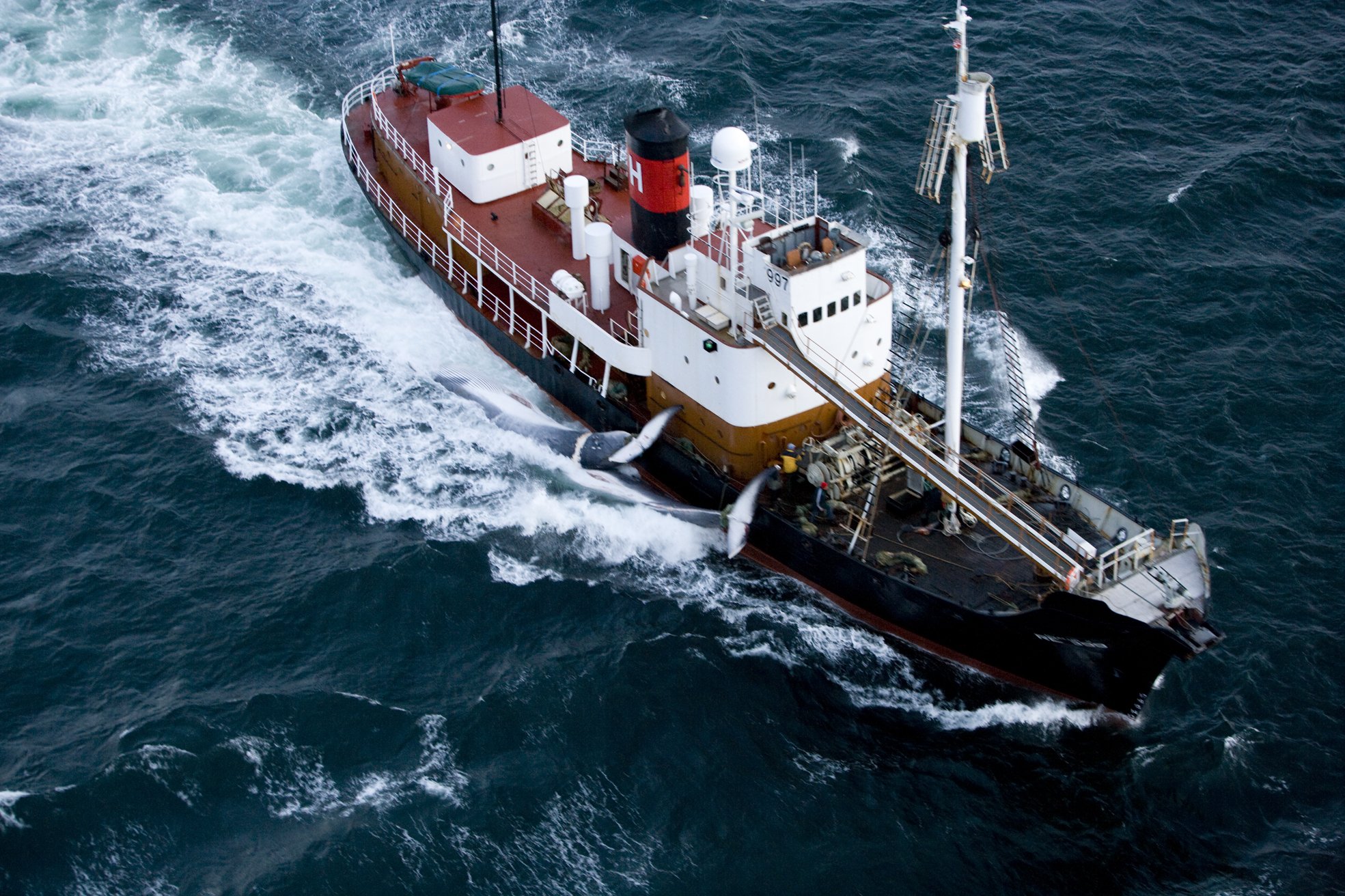Safe For Now: Iceland Suspends This Year’s Whale Hunt
The decision comes after a welfare report into the whaling industry revealed that whales are suffering slow and painful deaths after being harpooned.
Iceland has suspended its controversial whale hunt after the industry was accused of violating animal welfare laws.
The Icelandic Fisheries Minister, Svandís Svavarsdóttir, announced that the hunting of fin whales in the country will be suspended until 31st August. The decision comes after a government report published last month revealed that over 40 percent of whales killed during the most recent whaling season suffered slow and painful deaths.
The unprecedented whale welfare report compiled expert analysis of hours of footage recorded by government surveillance cameras onboard Icelandic whaling ships.
For the 58 fin whales whose slaughter was recorded, the ‘time to death’ - the time it takes for a whale to die after being harpooned - was a median of 11.5 minutes. Around a quarter of whales had to be harpooned a second time, and in one particularly startling case, a whale struggled for two hours before eventually being considered dead.
“This alarming report underscores the need for a discussion in Iceland about the values we want to be known for”, Svavarsdóttir, told the Guardian when the report’s findings were first published in May.
Now, the government’s suspension of the industry could mark the end of whaling in Iceland.
An Icelandic whaling ship. Credit: IFAW
“This could be the final curtain call for commercial whaling in Iceland,” said Sharon Livermore, International Fund for Animal Welfare (IFAW) Director of Marine Conservation. “An instant death cannot be guaranteed for these whales, and the suffering is unimaginable. Clearly, the Icelandic government can see no future in this outdated practice.”
The suspension will affect the country’s last commercial whaler, Kristjan Loftsson, and his whaling company Hvalur hf, who have fought for years to keep the whale hunt alive.
While the new suspension only lasts until the end of August, the whaling season runs from mid-June to mid-September and so it is expected that Loftsson would not begin hunting so late in the season.
This could mean that no fin whales are hunted in Iceland this year.
Whaling in Iceland
More than 1,900 fin and minke whales have been killed in Iceland since the International Whaling Commission (IWC) moratorium on commercial whaling came into effect in 1986.
During the hunting process, a whale is chased by whalers until a grenade-tipped harpoon can be fired from the whaling vessel. The harpoon should penetrate about a metre into the whale, where it should explode and release spring-loaded claws into the flesh. The explosion is intended to create enough energy to kill or knock out the whale. However, this is dependent on where on the whale’s body the harpoon hits, and so the whale may not be killed immediately. In addition, some harpoons do not explode.
Credit: IFAW
The whalers of Hvalur hf have killed 993 fin whales since 2009. The whale meat is exported, primarily for the Japanese market.
An End to Whaling
Iceland’s current whaling quota is due to expire at the end of 2023, after which a new five-year quota would need to be authorised by the Fisheries Minister. This, alongside the timely decision to pause whaling this summer, signals that this could be a critical turning point for the Icelandic Government to assess the future of whaling in the country.
IFAW, along with other animal welfare and marine animal organizations are calling on the Icelandic authorities to bring an end to whaling and issue no further whaling licences or quotas after this year.
Use your voice to help keep marine animals in the wild - join Species Unite in urging the USDA to hold SeaWorld Orlando accountable for neglect and revoke their Animal Exhibitor License. Add your name here.
We Have A Favor To Ask…
Species Unite amplifies well-researched solutions to some of the most abusive animal industries operating today.
At this crucial moment, with worldwide momentum for change building, it’s vital we share these animal-free solutions with the world - and we need your help.
We’re a nonprofit, and so to keep sharing these solutions, we’re relying on you - with your support, we can continue our essential work in growing a powerful community of animal advocates this year.
More stories:
Species Unite
A collection of stories of those who fight the good fight on behalf of animals.






Evaluating drugs with cutting-edge technology instead of animal testing will improve drug safety and cut development times, the agency said as it reveals a roadmap to increase non-animal research techniques.